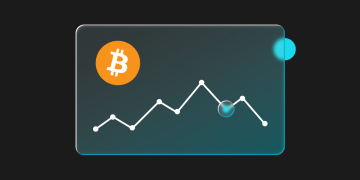In the rapidly evolving world of blockchain technology, enterprises are continually seeking solutions that can offer robust security, scalability, and flexibility. As blockchain adoption accelerates, businesses are increasingly looking for ways to harness its potential without sacrificing control or complicating their existing infrastructure. Chain Core, developed by Blockstream, has emerged as an ideal platform for constructing private blockchains and managing enterprise-grade blockchain applications.
This article explores how Chain Core is revolutionizing the way enterprises build and manage blockchain networks, focusing on its strengths in creating private chains, its enterprise-level capabilities, and the real-world impact it’s having across various industries.
1. Introduction: The Growing Need for Private Blockchains
Blockchain technology, with its decentralized, transparent, and immutable nature, has long been seen as a game-changer for industries like finance, supply chain, and healthcare. However, as businesses begin to explore blockchain, the need for private and permissioned blockchains becomes increasingly apparent. Public blockchains, while powerful, may not offer the privacy, security, and control that many enterprises require, especially when dealing with sensitive data and proprietary information.
Enter Chain Core, a highly flexible blockchain platform that enables businesses to build private chains tailored to their specific needs. By leveraging Chain Core, organizations can unlock the benefits of blockchain technology—such as transparency, immutability, and automation—while maintaining the privacy and control they require.
This article explores why Chain Core is the ideal platform for building private chains and managing enterprise-grade blockchain applications, providing an overview of its features, advantages, and real-world use cases.
2. What Is Chain Core?
Chain Core is a robust blockchain platform developed by Blockstream, primarily designed for enterprise use. It is based on Blockstream’s Liquid Network, a federated sidechain that enables faster, secure, and more confidential transactions compared to traditional public blockchains like Bitcoin.
Chain Core is highly versatile, supporting both private and permissioned blockchain networks, making it an ideal solution for enterprises that require a high degree of control and customization. With features like asset issuance, multi-signature security, and smart contract capabilities, Chain Core is optimized for a wide range of use cases in industries such as finance, supply chain, and digital asset management.
By using Chain Core, enterprises can build their own private blockchain networks that are capable of processing transactions securely, quickly, and efficiently, while also supporting advanced blockchain features such as tokenization, asset tracking, and automated contract execution.
3. Key Features of Chain Core for Enterprise Applications
a. Private and Permissioned Blockchain
One of the standout features of Chain Core is its ability to create private and permissioned blockchain networks. Unlike public blockchains where anyone can participate and validate transactions, private blockchains allow enterprises to control who can access and participate in the network. This provides a higher level of privacy and security, making Chain Core an ideal solution for enterprises handling sensitive or proprietary data.
Enterprises can create permissioned networks where only authorized entities can validate transactions, providing greater control over the integrity of the system. This model is particularly useful for industries such as banking and healthcare, where confidentiality is paramount. Additionally, the private nature of the blockchain reduces the risk of data exposure and ensures that transactions are only visible to approved participants.
b. Scalability and Performance
Scalability is a significant concern for any enterprise blockchain solution, particularly when dealing with high volumes of transactions. Chain Core is designed to handle large-scale operations without compromising on performance or speed. Unlike many public blockchain networks, Chain Core employs a more efficient consensus mechanism, which enables faster transaction processing times and greater throughput.
The ability to scale is particularly important for industries like finance, where transaction volumes can be extremely high, or in supply chains that require real-time tracking of goods across multiple geographies. With Chain Core, businesses can ensure that their blockchain applications grow with their operations while maintaining optimal performance.
c. Multi-Signature Security
Security is a top priority for businesses adopting blockchain technology, especially when managing sensitive information. Chain Core offers multi-signature functionality, allowing multiple parties to sign and authorize transactions before they are processed. This feature enhances the security of the network by ensuring that no single entity has complete control over the blockchain.
Multi-signature security is crucial in preventing fraud and ensuring the integrity of financial transactions. By requiring multiple signatures for a transaction to be approved, Chain Core reduces the risk of single points of failure and helps maintain the trust and security of the network. This feature is particularly valuable for industries such as banking, where transactions need to meet strict regulatory and compliance requirements.
d. Asset Tokenization
Tokenization is a powerful feature of Chain Core, enabling the creation of digital representations of real-world assets. With asset tokenization, businesses can issue, transfer, and trade assets like real estate, commodities, or equity on the blockchain, opening up new opportunities for liquidity and fractional ownership.
For example, Chain Core allows financial institutions to tokenize bonds or stocks, making it easier for investors to trade these assets on a blockchain network. Similarly, in the real estate industry, Chain Core can be used to tokenize property ownership, enabling easier transfer of assets and reducing the need for intermediaries.
Tokenization not only increases liquidity but also makes transactions faster and more cost-effective, as it reduces the complexity and overhead of traditional asset management systems. This is one of the key reasons why Chain Core is becoming a go-to solution for enterprises in industries like finance, real estate, and supply chain.
e. Smart Contracts and Automation
Smart contracts are self-executing contracts with the terms of the agreement directly written into code. They automatically execute when predefined conditions are met, eliminating the need for intermediaries and reducing administrative costs. Chain Core supports the creation and deployment of smart contracts, enabling enterprises to automate business processes, improve efficiency, and reduce the likelihood of human error.
For example, in supply chain management, a smart contract could automatically trigger a payment when goods are delivered to a warehouse. Similarly, in asset management, smart contracts could automatically execute trades when certain market conditions are met. This level of automation allows businesses to operate more efficiently while reducing the risk of fraud and delays.

4. Advantages of Chain Core for Enterprises
a. Cost Efficiency
One of the primary advantages of Chain Core for enterprises is its cost-effectiveness. By using Chain Core, businesses can avoid the significant costs associated with building and maintaining their own blockchain infrastructure. Chain Core offers a modular solution that can be easily integrated into existing systems, eliminating the need for expensive infrastructure investments.
Moreover, by automating various business processes through smart contracts, businesses can significantly reduce the need for manual intervention, further lowering operational costs. The ability to tokenize assets also opens up new avenues for trading and investment, creating efficiencies that traditional systems cannot match.
b. Simplified Development and Deployment
Developing a blockchain solution from scratch can be an arduous and complex process that requires specialized knowledge in cryptography, consensus algorithms, and distributed systems. Chain Core simplifies the development process by providing a suite of developer tools, including SDKs, APIs, and pre-built templates for common use cases.
This makes it easier for enterprises to build blockchain applications without requiring a team of blockchain experts. Additionally, the platform is designed to integrate seamlessly with existing enterprise systems, reducing the complexity of deployment and ensuring faster time-to-market for new applications.
c. Regulatory Compliance
Compliance is a significant concern for enterprises in heavily regulated industries such as finance and healthcare. Chain Core supports compliance with various regulatory frameworks by providing features like data privacy and auditability. The immutability of blockchain ensures that all transactions are recorded and can be easily audited, making it easier to meet regulatory requirements.
Moreover, Chain Core’s permissioned nature allows enterprises to control who can access and modify the blockchain, ensuring that only authorized users have access to sensitive information. This level of control is essential for industries like finance, where data security and regulatory compliance are paramount.
5. Real-World Use Cases of Chain Core
a. Financial Services and Cross-Border Payments
In the financial sector, Chain Core is being used to streamline cross-border payments, improve liquidity management, and enhance security. By utilizing private blockchain networks, financial institutions can reduce the costs and complexities associated with traditional payment systems, such as correspondent banks and clearinghouses.
Chain Core’s ability to provide real-time settlement, asset tokenization, and enhanced security features makes it an ideal solution for global financial institutions seeking to modernize their operations and enhance customer experiences.
b. Supply Chain Management
Supply chain management is another industry where Chain Core is making a significant impact. By enabling real-time tracking of goods and automating various processes through smart contracts, businesses can improve transparency, reduce fraud, and streamline operations.
For example, Chain Core can be used to track the movement of goods from suppliers to distributors to retailers, ensuring that each step in the process is recorded on the blockchain. This not only provides visibility into the supply chain but also helps businesses optimize their inventory management and reduce the risk of fraud.
c. Real Estate and Property Management
The real estate industry is leveraging Chain Core for asset tokenization, enabling easier transfer of property ownership and reducing the reliance on intermediaries like real estate agents, title companies, and notaries. With Chain Core, property transactions can be conducted more quickly, securely, and with fewer administrative costs.
6. Conclusion
Chain Core has emerged as an ideal platform for enterprises seeking to build private blockchain networks and manage blockchain applications at scale. Its unique combination of security, **scalability
**, cost efficiency, and ease of integration makes it the go-to solution for businesses across industries looking to unlock the full potential of blockchain technology.
With its ability to create private and permissioned blockchains, support smart contracts, facilitate asset tokenization, and ensure regulatory compliance, Chain Core is helping businesses reduce operational costs, enhance efficiency, and drive innovation.
As blockchain technology continues to evolve, Chain Core stands out as a powerful and reliable solution for enterprises looking to build robust, secure, and scalable blockchain applications.

















































